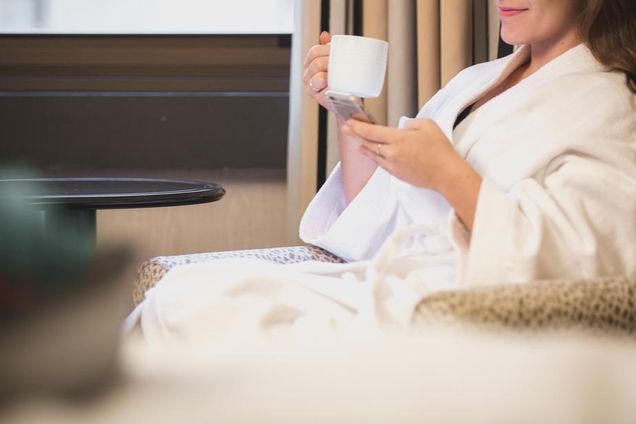Cutting Through the Online Hospitality Clutter: 10 Best Practices for Organic Visibility
By Juan Lesmes and Leora Lanz
It wasn’t that long ago when digital marketing surfaced as indispensable practice for the hospitality industry. As time moved forward, hotel marketing departments established roles to manage the digital positioning and visibility of the property. Thus, we witnessed hospitality brands which were ‘present’ on social media outlets, adopting paid search as a permanent component of their marketing mix and abiding by well-known website best practices. We refer to this period as Phase I of the Hospitality Digital Marketing Revolution.
Phase II quickly blossomed, and hotels realized that the competition to penetrate the digital space was strong and arduous. Brands started focusing on and investing in the internet user-experience (UX), negotiating partnerships with online travel agencies (OTAs), understanding the landscape of search engine result pages (SERPs), separating high-value budgets exclusively for search engine marketing (SEM), and delving into the intricacies of search engine optimization (SEO) for their own websites. Social media served as a competitive advantage and quickly escalated as paramount for marketing, branding, reputation management, and organic visibility. Paid search, via Google AdWords platform, is not to be confused with the organic approaches detailed here.
As we delve into 2018, Phase III emerges clearly. OTAs dominate and in some instances monopolize Google searches with first page results. Consequently, hotels are realizing that digital marketing efforts should be shifted from a haphazard online presence to one that is strategic – one that capitalizes on each micro-moment of the guest travel planning journey (most of which, if not all, occurs on the web). As social media forces Instagram and Facebook solidify their roles as prominent search engines, paid ‘posts’ within users’ ‘feeds’ continue to convey the power of personalized sponsored content.
With a myriad of stakeholders now involved in the simple act of searching for hotel rooms, is it a battle worth fighting? The answer is absolutely. But before addressing the how, it is crucial to identify and differentiate the digital marketing scope of branded and non-branded hotels. Branded hotels, especially those flagged with hospitality powerhouses, benefit from a more powerful domain authority coming from the parent chain, making it easier for them to rank higher on the SERPs. Take Marriott.com/hotel vs. hotelname.com for example. Domain authority is the overall power of the domain name considering traffic size, popularity, and number of links to the site (backlinks). It is also a top ranking factor for Google.
Branded hotels also tend to have significant budgets to spend on Pay-Per-Click (PPC) and paid search, ensuring top first page visibility for valuable destination and branded queries. In addition, branded hotels have wider access to digital partnerships, including listings, local directories, event sponsorships, travel influencers, and online features – all of which provide authoritative backlinks to the hotel’s site, further contributing to its domain authority.
Because independent and small-scale hotels rarely benefit from domain authority, maintaining and monitoring digital marketing best practices to boost Google rankings should be a requirement, not merely a recommendation. Digital marketing practices command their own dedicated efforts. Yet online marketing should be well-equipped with its own strategy and utilize expertise in the nuances and intricacies of hotels, restaurants, leisure activities, and attractions – overall, hospitality.
The question then becomes, how can hotels strive for visibility in this Wild West of a digital landscape, particularly if they are competing against each other, the OTAs, and a powerful sharing economy?
1. Execute a Carefully Crafted Keyword Strategy
Optimizing for search queries, also known as keywords, is perhaps the core of any digital marketing tactic aiming to build visibility – both organic and paid. Identifying those keywords with the highest search volume, such as ‘Miami hotels,’ is the intuitive process. Presence on Google’s first page for high search-volume keywords requires a robust SEM budget, an ongoing and long-term SEO strategy, or both. This puts independent and small-scale properties, which often do not have the necessary budget and fundamental team, at a notable disadvantage.
However, niche keywords present a different scenario. These queries are typically ’long-tail’ meaning they contain more than four words. Though niche keywords do not have the highest search popularities, it is much easier to actually capture their search volume, which then results in higher click-through rates (CTR). Hotels can leverage niche keywords by identifying their unique amenities and value propositions, and turning them into valuable keywords. For example, ‘Miami hotels with a rooftop bar,’ ‘Miami hotels with free breakfast’ and ‘Miami hotels with nightclubs’ are terms to utilize as they leverage a more specific travel intention that easily turns into conversions (booked business). It is crucial to think as the customer would.
Some independent hotels, because of the virtue of their uniqueness and often niche-market, can have the upper hand in this situation. A property which positions itself as a resort for health and well-being could therefore pursue niche terms such as ‘wellness resorts’ and ‘fitness getaways.’ The key is to identify the brand’s top performing unique selling propositions (USPs) and translate them into humanized search queries, all while keeping the guests’ travel planning journeys in mind.
Finding a balanced mix of both high-search volume terms and niche queries secures strategic keywords. Nevertheless, actually optimizing for them by ensuring they are naturally or comfortably present throughout the website’s titles, content, metadata and bidding efforts also help secure a carefully crafted keyword strategy.
2. Optimize for Local Search
Our termed “Phase II” also put the spotlight on search engine business directories such as Google My Business and Bing Places for Business. In Phase III, hotel listings on these directories is no longer a recommendation, it is a necessity. Optimizing for local search entails driving the visibility of a property’s business listing via a two-part process:
- Ensure the listing’s content is precise and optimal. For a hotel’s listing to be effective, it needs to be correct. This means not only having a consistent name, address, and phone number (NAP) across the web, but also sharing additional business attributes such as business hours, property images, contact e-information, and business category. Because Google understands that local users are better served by businesses that outline all the information they need, it ranks complete, accurate, and consistent listings higher than those that are partial. If your hotel has a separate restaurant, spa, or in-house shop, each should have a separate online business listing.
- Utilize keywords with universal search integrations – Certain keywords tend to trigger significantly more universal search results, which includes a blended combination of Carousel, Local 3-Pack, Images, and Maps. (The former two are Google features found on search pages, displaying images and contact information to help users with specific searches). Because they are primarily location-based, they present yet another opportunity to drive the hotel’s local business listing. Keywords such as ‘Miami hotels near American Airlines Arena’ or ‘Downtown Miami hotels,’ for example, have powerful local search integrations since they allude to a local area within a larger market. As a result, incorporating these styles of keywords into the hotel’s website and local listings is a way to let Google know that the property is not only highly relevant to the query, but also a local business to be recognized.
3. Attain and Maintain a Star Rating on Google
One of the key components of local search results is the Star Rating associated with a business listing. In fact, star reviews on SERPs are an effective way for hotels to increase digital visibility by standing out from the competition. Star ratings help increase the site’s CTR and provide an influential benchmark for online reputation management (ORM). Once an exclusive attribute for paid results, star ratings now also appear on organic results through Google’s ‘Rich Snippets.’ These snippets are a form of structured data which Google extracts from multiple websites and presents it as a ‘preview’ in search results, also known as Google’s Knowledge Graph.
Therefore, obtaining and retaining star ratings involves safeguarding reviews on trusted and authoritative review sites. Google then aggregates this rating data and displays an average star rating. Hotels (restaurants, attractions, etc.) should encourage satisfied guests to submit reviews to their booking channel (i.e. Expedia) because they are by default ‘trusted’ sites. However, they should also encourage reviews for their own Google My Business listing in an attempt to increase the hotel’s chances of being featured on local search results.
It is important to clarify that there is a technical component to obtaining a Google star rating. Codes put onto the website to help search engines return more informative results to users. Hotels need to ensure that their web developers also include star rating information within the markup code.
4. Enhance Content on Local Listings
A hotel’s content for its local listings should be strategically optimized. Whether it is in Foursquare, CitySearch, or any other listing, valuable keywords should be incorporated throughout the copy – including local search ‘near’ queries such as ‘hotel in Miami near Brickell’. If the brand image is playful and tongue-in-cheek, the content on local listings should also reflect that. Some listings even allow for a featured message. Rather than a generic ‘Welcome!’ hotels can use this space to promote current offers or highlight special amenities (complimentary champagne, sunset yoga, free breakfast).
Other content elements such as images should be of the highest quality, showcasing provocative yet realistic visuals of the property’s exterior, interior, and overall ambiance. Links to all the property’s social media channels should be present in the listings, which allows the user to access other hotel assets including brand personality and online reputation.
5. Optimize for Voice Search
With increasing utilization of smart personal assistants such as Alexa and Google Home, voice search is a prime topic of conversion within the digital marketing realm. In order to be visible in results derived from these devices, hotels need to ensure they are optimizing their site and keyword strategy for voice search too. Since users are more likely to use longer natural queries via voice, employing niche, long-tail keywords is an effective method to optimize for this trend.
Long-tail keywords are fruitless without the relevant content on a hotel or restaurant’s website. Hotels need to have specific landing pages that parallel the niche keywords. If a hotel seeks ‘Hotels in Miami with rooftop pools’—a keyword likely used by the voice search user—it must appear in the relevant landing page.
Incorporating questions and answers within the site, perhaps via the ever-popular Frequently Asked Questions (FAQ) page, is another effective way to accommodate voice search. With this strategy, hotels can provide answers not only about the property itself, but also about their destination and local attractions as a result of quick detection by voice-activated devices.
It is important to note that recently, numerous hotel properties and companies have been contacted by law firms representing travel consumers with disabilities. These law firms report that websites are not abiding by accessibility guidelines in accordance with the Americans with Disabilities Act (ADA). If a guest is unable to use a hotel website to find information or make a reservation, hotels can in fact be fined. Today hotel websites must enable these assistive technologies to allow travel consumers with disabilities to get the information they need and complete any necessary transactions.
6. Adopt a ‘Mobile First’ Mantra
Much has been said about Google’s ‘mobile first’ index. This means Google will start to rank its search results based on the mobile version of the content, even in desktop search listings. If one thing is certain, websites need to be optimized to be mobile-friendly (responsive). Hotels need to ensure they launch a fully-responsive website that serves users of any device the same consistent content. The more ‘mobile-friendly’ a site’s user experience is, including factors such as typography, navigation map, and website design, the higher the site will rank on Google’s search.
7. Leverage Google Hotel Ads
Google Hotel Price Ads (HPA) showcases a hotel’s real-time (dynamic) rates on Google search across all devices. Users will see the hotel’s ad when they are actively looking to book a room in the area. However, the hotel only pays when the ad generates a click or a booking.
Google has recently introduced a unique call-to-action (CTA) button for booking hotels in its search results. A keyword can trigger a ‘BOOK A ROOM’ button to appear. Clicking this will activate a sub-menu to browse all enlisted HPAs for the hotel, which includes booking direct and via OTAs.
This feature, which also appears in Mobile and Maps, demonstrates Google’s determination to grow its Price Ads service. The increased exposure provides more incentive for hotels to capitalize on this form of pay-per-click in order to promote direct bookings.
8. Increase Backlinks, Actively
A backlink is as simple as a hyperlink to a website from another website. Yet, it carries a lot of weight when it comes to a hotel’s organic digital visibility. Each backlink tells the search engine that a hotel website has a ‘vote’ from another entity, which in return builds credibility and domain authority. Branded hotels have the upper hand here since the company usually has a corporate parent site that a plethora of other websites will link to (such as Marriott.com or IHG.com).
There are technicalities to backlinks, including the quality of the backlink determined by elements such as anchor text and link context. These technical factors play a role in the algorithm the search engine uses to determine the value of a backlink. In theory, the more quality backlinks a hotel website has, the more chances to rank higher on search engines.
Actively pursuing relevant backlinks should be imperative for hotels to obtain first page ‘real-estate’. Obtaining links from local directories, current hotel vendors, editorial publications, and .EDU and .GOV sites should be the gateway for enhancing the site’s link equity. However, to continuously grow the number of backlinks, hotels need to be generating quality, shareable content that interlinks with social media initiatives.
9. Remember Optimal Social Media = (Quality + Authenticity) x Engagement
Much has been contemplated about what comprises a successful social media strategy. Although there is no ultimate recipe for the perfect social media post, three factors that boost performance are quality, authenticity, and engagement. Optimal Social Media = (Quality + Authenticity) x Engagement. Each piece of content maximizes visibility, both organic and paid. When posts are authentic and of high quality, users are more likely to relate and validate them. When posts are authentic, of high quality, and facilitate some type of user engagement, the content becomes shareable.
When content generates more likes, followers, and overall visibility it establishes an influential ranking factor. Therefore, search engines tend to rank higher those brands that have a robust organic social media base (not paid or ‘spammy’ followers). This is why it is important for hotels to intertwine their social media strategy with their SEO efforts by creating quality, authentic, and engaging content that increases overall digital exposure.
10. Consider the Technicalities of SEO
Technical SEO is a science of its own and deserves its own team of specialists, budget, and time. Technical SEO means optimizing a website so search engines can successfully crawl and index its content. It lays a powerful foundation to give a hotel’s website the best chance it can to rank higher for relevant keywords. Technical factors include site speed, removing unnecessary tags, cleansing duplicate metadata, adding tags to images, and implementing proper redirects to maximize the site’s link equity. Whether there is a one-man team or a staff of professionals continually optimizing the website, there are tools to help provide the technical support.
Hotels, restaurants, museums, attractions, and leisure activities all need to assertively compete online to grab the attention of potential guests. Those who tend to the organic visibility have a notable competitive. This and integrated paid search campaigns that mutually support organic search strategies will help secure first page visibility. Overall, while the need to upkeep search engines’ potent algorithms and ranking methodologies will always remain, an understanding of the process will help smaller or independent hospitality businesses cut through the clutter in today’s complicated digital landscape.
 Juan Lesmes is a digital marketing strategist specializing in SEO at HEBS Digital the leading hospitality technology, full-service digital marketing and website design firm. A 2017 graduate of Boston University’s School of Hospitality Administration (SHA), Juan’s previous experience includes work at hospitality marketing advisory LHL Communications, The Ritz London, and Lets Get Weddy in London. Since his time at SHA, Juan has been recognized as a thought leader in hospitality marketing, with active contributions to the Boston Hospitality Review, HotelOnline and HospitalityNet.
Juan Lesmes is a digital marketing strategist specializing in SEO at HEBS Digital the leading hospitality technology, full-service digital marketing and website design firm. A 2017 graduate of Boston University’s School of Hospitality Administration (SHA), Juan’s previous experience includes work at hospitality marketing advisory LHL Communications, The Ritz London, and Lets Get Weddy in London. Since his time at SHA, Juan has been recognized as a thought leader in hospitality marketing, with active contributions to the Boston Hospitality Review, HotelOnline and HospitalityNet.





 Leora Halpern Lanz, ISHC, is principal of
Leora Halpern Lanz, ISHC, is principal of
19 comments
hello admin
great information shared by you.iam glad if u add my site (https://webfamedigital.com) in your post.
thank you,
Hair Transplant istanbul
Hair loss is a common problem for both men and women, impacting self-esteem significantly. Fortunately, advances in modern medicine have made hair transplants a permanent solution to this problem. Istanbul has become a globally renowned center for hair transplant procedures.
Hey i have read your article
its great article very informative and useful for small busineses
i have written article: Benefits of seo for small business
https://www.mrmarketer.in/the-benefits-of-seo-for-small-businesses/
Lipödem Diyet Listesi
Lipödem, genellikle kadınları etkileyen, anormal yağ dokusu birikimi ile karakterize bir durumdur. Bu hastalık aşırı yağın belirli bölgelerde, genellikle bacaklarda, uyluklarda ve bazen de kollarda birikmesine neden olur. Lipödem hormonal faktörler ve genetik yatkınlıktan kaynaklanır.
Vaya media is a unique amalgamation of innovation and ideation. It is a traditional-to-modern agency that focuses on Branding and Marketing.
https://vayamedia.in/
Wow! It’s quite good to have this information. Without a doubt, I’m storing this for later since we want to offer more insightful information Ghostwriting I’m appreciative.
Your blog is always so informative and insightful. I always learn something new when I read your posts.
Light Gauge Steel Frame Construction in India
Kudos to the insightful blog, it was really informative and Helpful , looking forword for more blog like this . I’d also like to add that The Best Eye Doctor In Ambikapur is in Sankalp Eye hospital and their commitment to eye care excellence is truly remarkable. The expertise of their eye specialists and the modern diagnostics they offer are a testament to their dedication to improving vision and eye health.
Very informative article. Our institute Easy digi academy is best training institute in Raipur with all the courses provided by us. Please visit our website https://www.easydigiacademy.com/courses/digital-marketing-courses-classes-in-raipur.php
Hi guys, I wanna share amanda the adventurer to you. This is must-try horror game.
Thanks for this illuminating post on navigating the complexities of online hospitality visibility! The 10 best practices outlined here are not just insightful but also directly applicable. I particularly appreciate how these strategies seamlessly tie into the broader realm of digital marketing. Speaking of which, if anyone is looking to master these techniques and more, exploring a reputable Digital Marketing Course In Raipur would be a wise move. Your guide serves as a valuable foundation, and coupling it with a targeted course could be the game-changer many businesses need. Great insights!
Connect us for Hospitality Business Setup in Dubai .
Sapphire Greens, located in Aama Seoni, Raipur, Chhattisgarh, is your one-stop destination for prime real estate in Raipur. We specialize in offering diverse options, from spacious Plots in Raipur and modern 3 BHK apartments to a wide range of properties for sale in Raipur. Discover the perfect property to fit your unique lifestyle and investment needs with Sapphire Greens.
Dental credit card processing is a specialized service that allows dental practices to securely and efficiently process payments made by their patients using credit cards. This service is specifically designed to cater to the unique needs and requirements of dental offices, ensuring seamless and hassle-free payment transactions.
With Dental credit card processing, dental practices can offer their patients the convenience of paying for their dental treatments using their preferred credit cards. This not only enhances the overall patient experience but also helps dental offices streamline their payment processes. By accepting credit card payments, dental practices can eliminate the need for patients to carry cash or write checks, making it easier for them to settle their bills.
wow level boosting bietet Ihnen nicht nur eine hochwertige, sondern auch eine schnelle Möglichkeit, Ihr Level zu steigern und mehr Zeit mit den Dingen zu verbringen, die Sie brauchen
Mastering online hospitality visibility is like playing wordle unlimited, you need strategy, consistency, and a bit of creativity to rise above the clutter. These best practices are essential tools for staying ahead and ensuring your brand gets noticed organically.
Great insights on improving online visibility in the hospitality industry! Just as these best practices can help businesses stand out, book publishers services can also enhance an author’s online presence. Effective marketing strategies are essential for both sectors to connect with their audiences and share valuable content. Thanks for sharing!
thanks from https://hcsmart.in telling about Best Practices for Organic Visibility
With Guestpost.ing, I get a full-service experience—from content creation to outreach and placement. Their dashboard allows me to track progress at every stage, providing valuable insights for my campaigns. Their well-rounded approach saves me the hassle of managing different SEO vendors.